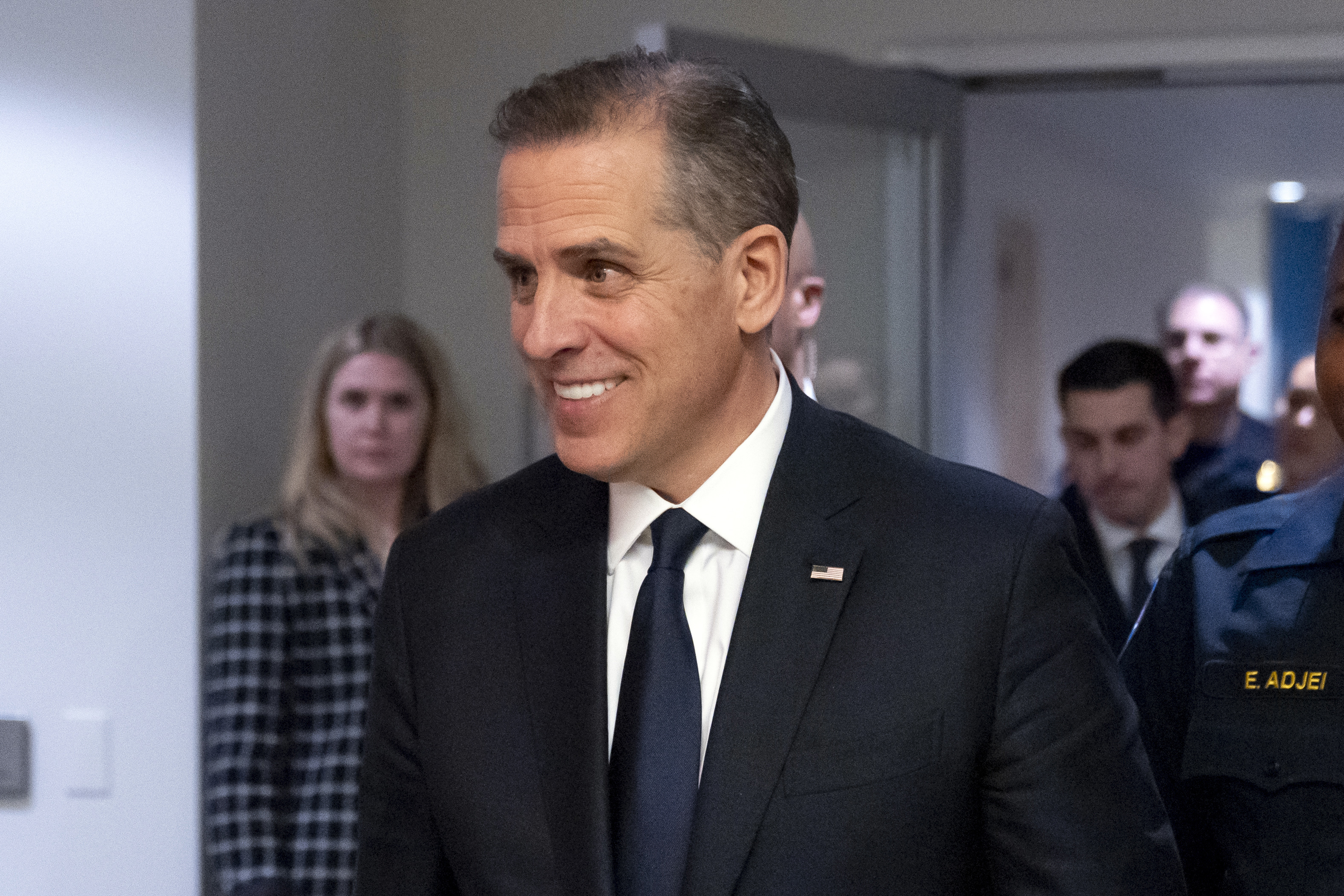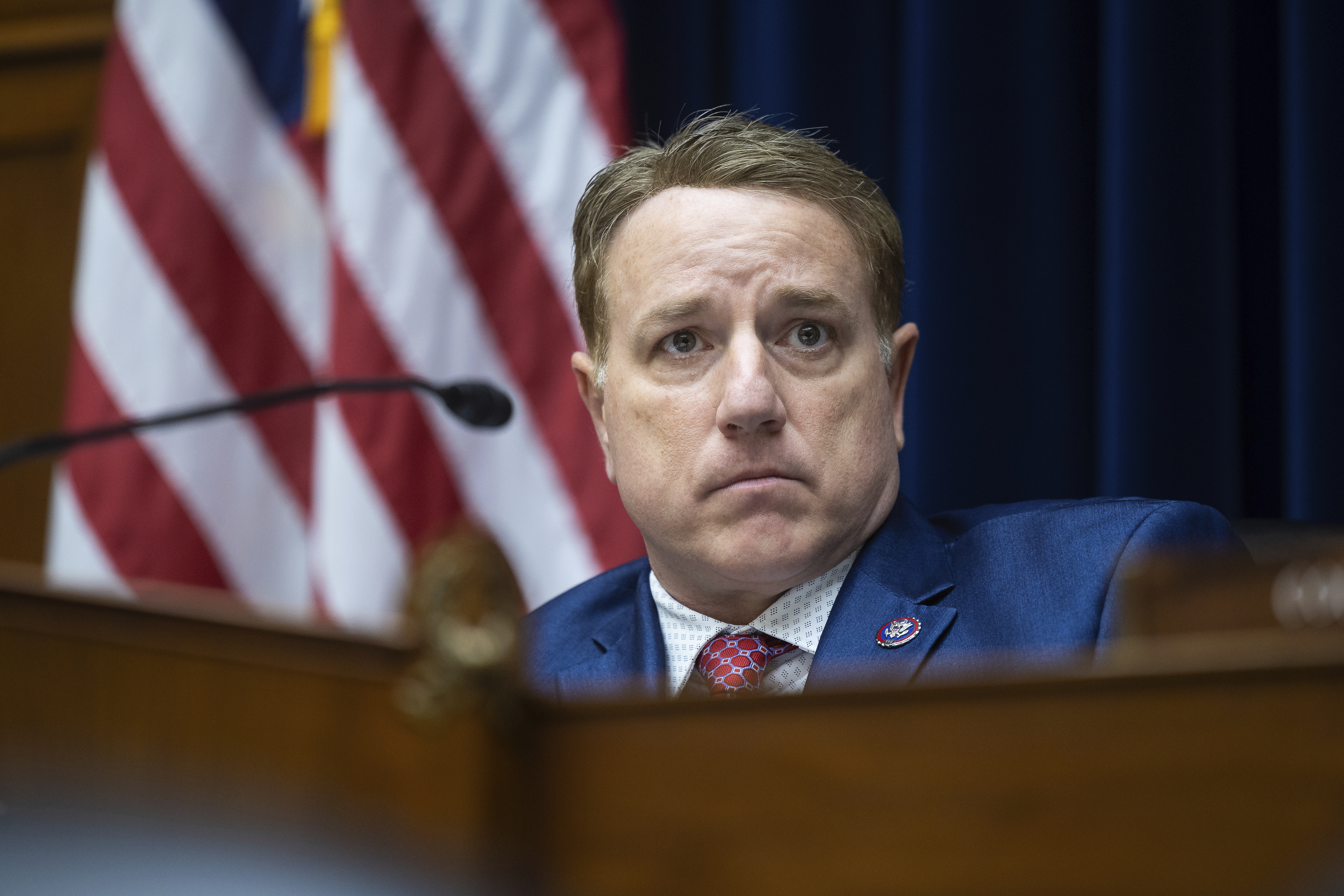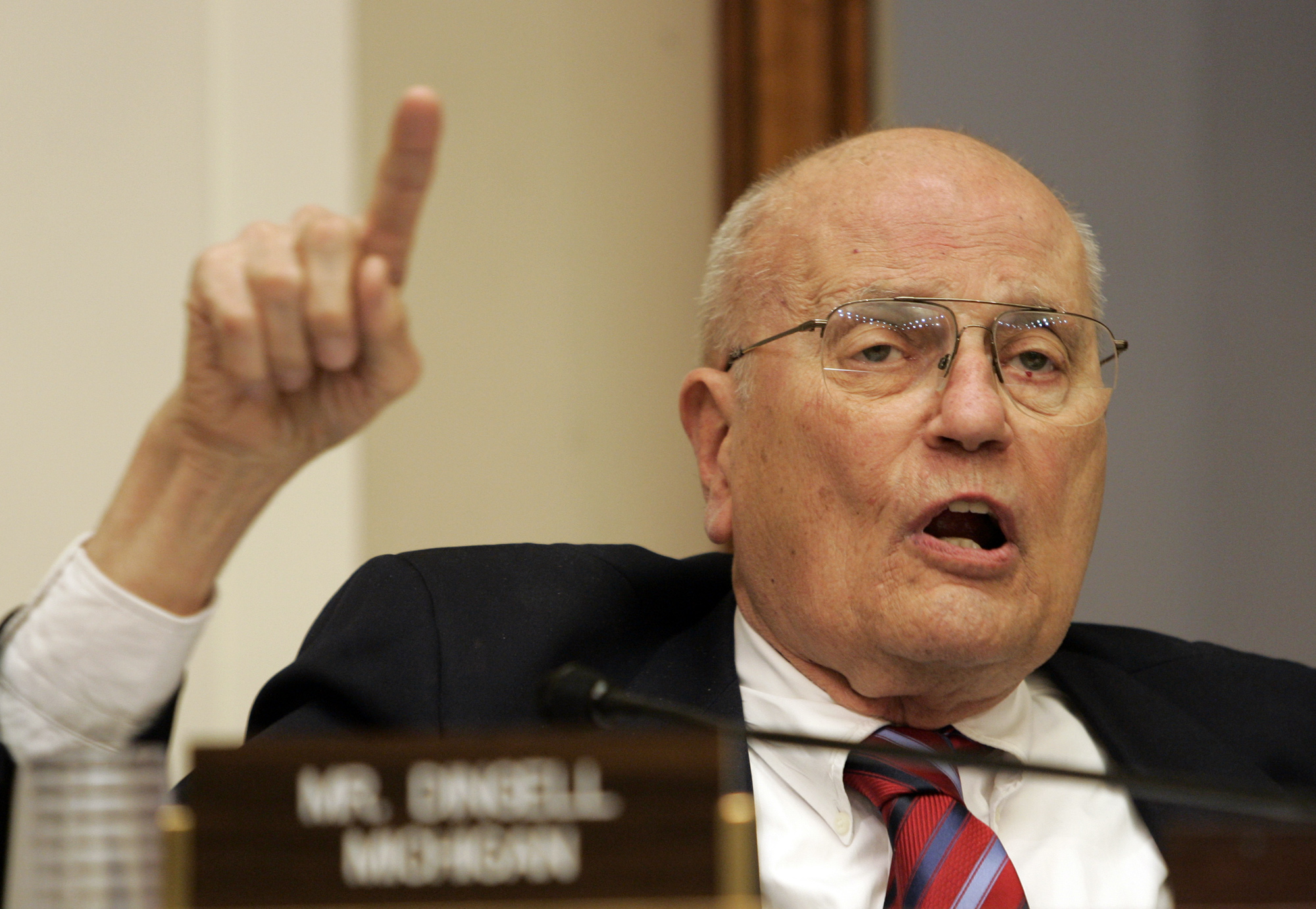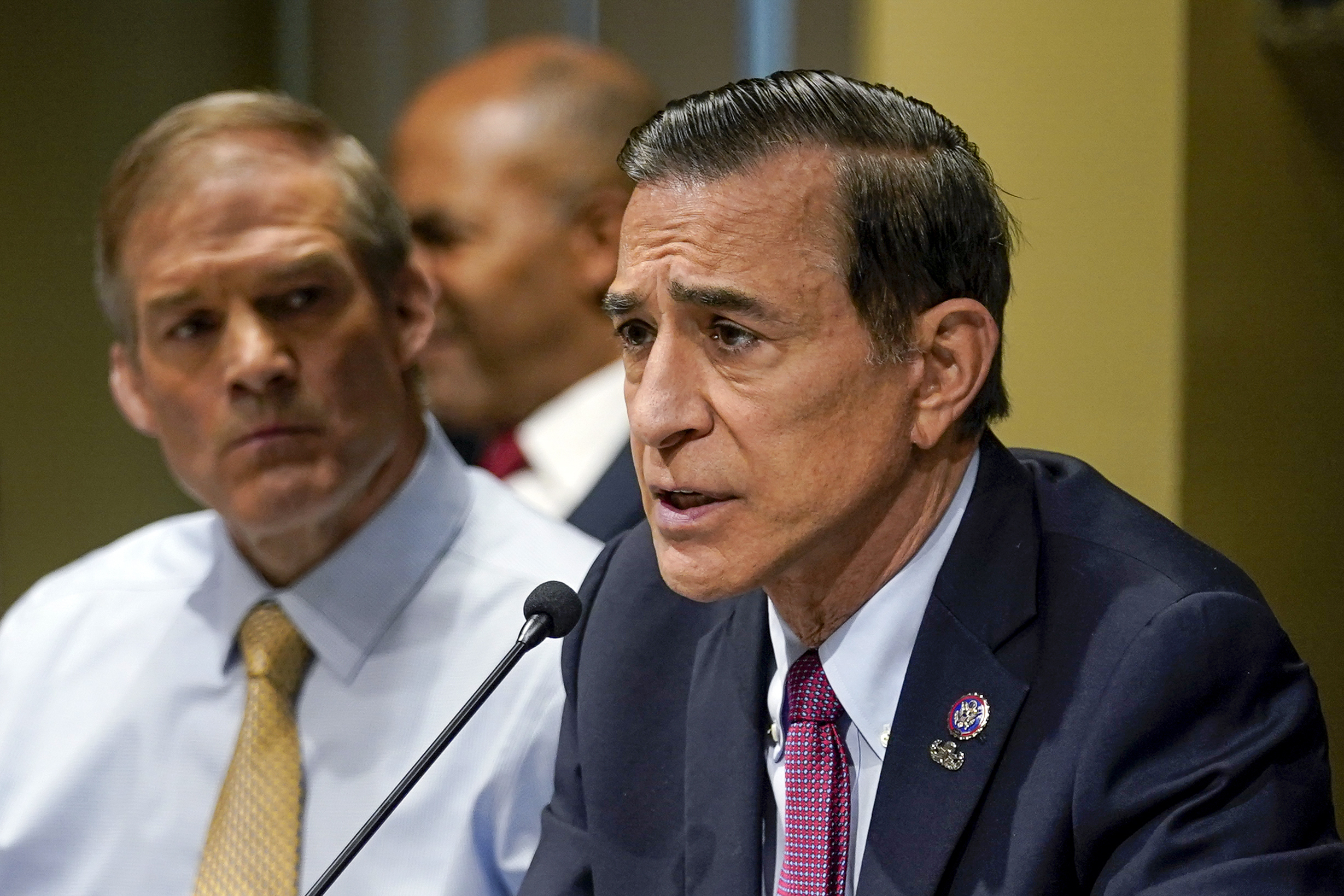House Republicans have investigated Hunter Biden for more than a year. They have launched a wide-ranging impeachment inquiry into his father, President Joe Biden.
But some energy advocates and other Hill observers are worried those efforts have come at the expense of rigorous oversight of the administration’s energy and environment policies.
Critics say the Hunter Biden probe has sucked up time and staff resources across three House committees — Oversight and Accountability, Judiciary, and Ways and Means. They argue that the result has been missed opportunities to scrutinize a target-rich environment, including implementation of Democrats’ landmark climate law, the Inflation Reduction Act.
“Team Biden is clearly trying to spend as much of the green giveaways in the IRA as they can before the election in case it goes bad for them,” said Tom Pyle, president of the pro-fossil fuel American Energy Alliance.
“The [Oversight] committee needs to step up and put some guardrails around that. I fear that the Hunter investigation, while important, may be distracting them to some extent from that type of important oversight,” he added.
That sentiment was echoed by Myron Ebell, an outspoken critic of mainstream climate science who recently retired from the right-wing Competitive Enterprise Institute.
“I think the focus on bigger objects such as Hunter Biden has clearly taken away attention and resources from other areas that need oversight and should be investigated,” he said.
For their part, Republicans on the committee say they are keeping up the oversight pressure and can “chew gum and walk at the same time.”
They point to various investigations that have been launched in the past year and are promising more to come. Rep. James Comer (R-Ky.), the chair of the Oversight and Accountability Committee who has been the public face of the Hunter Biden probe, has continued to call the panel’s work a “huge success.” The committee did not make Comer available for an interview.
But in interviews with a half dozen other Republican lobbyists and lawmakers, who were granted anonymity to speak freely, there was general agreement that time and resources had been squandered.
“My personal view is that Comer is not really up to the job of oversight,” said a former Republican Oversight senior staffer. “They wanted to do this Hunter Biden thing, and it’s kind of been a mess. They spent a lot of time on it, and it hasn’t really gone anywhere. They haven’t built the committee in a way that allows them to do other stuff also.”

The criticism comes as the “Biden family investigation,” which has focused on Hunter Biden’s business dealings with Chinese and Ukrainian energy companies, has hit recent setbacks and appears to be teetering. POLITICO reported that as many as 30 House Republicans could be opposed to impeaching President Biden if a vote hits the House floor.
Facing mounting pressure, Comer and Judiciary Chair Jim Jordan (R-Ohio) have vowed to charge on. The stakes are higher for them to deliver, as the probe has pulled top investigators away from other matters.
“It’s a reality of doing that work,” said another former senior Republican investigator. “There are only so many hours in the day.”
The former investigator added: “If Comer is using his political capital on this, he can’t use it in other places.”
Their wide-ranging Biden probe has roughly two dozen investigators, many of whom are among the most experienced, according to people familiar with the effort.
That’s deprioritized oversight of energy and environmental agencies for a few reasons. For one, Nick Loris, vice president of public policy at the conservative climate firm C3 Solutions, blamed election-year politics.
“Hunter Biden, immigration and broader culture war policies are on the front burner when it comes to red meat issues,” he said. “Even though there’s many concerning energy policies and regulations to target, it’s harder to rile people up when gas prices are more affordable.”
‘Plenty of bandwidth’
Republicans on Oversight, however, dismiss the recent wave of criticism.
“I think we can chew gum and walk at the same time,” said Rep. Pat Fallon (R-Texas), who chairs Oversight’s Energy Subcommittee. “This hasn’t affected it at all. We’ve got plenty of bandwidth.”
He said the reason there have been fewer subcommittee hearings lately has to do more with government funding fights and the budget.
But, he said, the rest of the year is mapped out. On energy specifically, he said, it’s really about “economic development.” His subcommittee will be holding a hearing next week examining electric grid reliability and the administration’s transition to renewable energy.

An Oversight aide, who was granted anonymity to discuss internal committee business, challenged the notion that energy and environment oversight has suffered at the expense of the Biden family inquiry.
“To date, the Oversight Committee has conducted 14 hearings and sent over 30 letters seeking information into sweeping, far-left environmental policies pushed by this administration,” the aide said, noting there are eight staffers working on the energy and environment team.
The committee last month asked the Federal Reserve whether asset managers seeking to apply environmental, social and governance investing criteria to investment decisions are in violation of federal statute.
It also recently published documents it obtained from the administration on an EPA proposed emissions rule in which officials seemingly questioned its cost and legality.
The aide added the committee will continue to hold the administration accountable for its “extreme regulatory overreach.” The aide also pointed to a recent committee press release that stated that the White House meddled in an EPA emissions rule.
Since Republicans took back the House in the November 2022 election, Comer has released eight reports. All but two have been on the Biden family investigation.
The Oversight aide said other investigations, including one on the Biden administration’s decision to release oil from the Strategic Petroleum Reserve, remain underway.
The committee “is still receiving information from [the Department of Energy] related to this ongoing investigation,” the aide said. “The Oversight Committee does not issue reports until an investigation is closed.”
Specifically, the full committee has held hearings on ESG investing, regulatory burdens, third-party “litigation funding” and the Inflation Reduction Act.
The Energy Subcommittee has had several others on energy scarcity, EPA rules, electric vehicles and gas stoves, among others. And the committee has passed bills on regulations as well as bipartisan reform bills, including the “Mission Not Emissions Act,” H.R. 3358, which would prohibit federal contractors from having to disclose their emissions.
More broadly, House Republicans have consistently made clear their opposition to Biden energy actions, like the recent pause on liquefied natural gas export reviews.
Wins at Energy and Commerce
Other Comer defenders pointed to oversight work being done at other House committees, including Natural Resources; Energy and Commerce; and Science, Space and Technology.
That latter committee has been digging into whether environmentalists had improper influence on the Council on Environmental Quality when helping craft a climate disclosure rule for federal contractors.
Rep. Paul Gosar (R-Ariz.), chair of the Natural Resources Subcommittee on Oversight and Investigations, predicted there would be “fireworks” at a hearing scheduled this week on so-called natural asset companies, which Republicans accuse of “monetizing nature and locking up public land.” Gosar said: “Public lands are not for sale. It should be very interesting.”

At Energy and Commerce, the committee has been looking into EPA’s green bank and the Energy Department’s Loan Programs Office.
That committee was involved in the investigation that eventually led to DOE scrapping a $200 million grant to Microvast, a China-linked battery company. E&C is also involved in a separate probe of Sunnova, a solar company with questionable sales practices that got a $3 billion DOE loan.
In addition, some Republican lawmakers maintained that the enormity of the charges against the Biden family warrant such a major investigation, even if they conceded it was fairly consuming.
“I imagine it would be stretched somewhat,” Rep. Doug LaMalfa (R-Calif.), who sits on the Natural Resources Committee but not Oversight, said of staff bandwidth.
Some lawmakers say Comer has no choice but to zero in on Hunter Biden. “We don’t choose the subjects that end up in front of us,” said Rep. Scott Perry (R-Pa.), a member of Oversight and House Freedom Caucus leader. “They are driven by the events in the course of history.”
‘People were afraid of him’

Ebell said he thought Republicans have never been particularly good at oversight.
“It’s frustrating, but it’s just the way congressional Republicans are,” he said. “I’ve been pointing this out for a long time, and people just nod their head.”
One way oversight can be effective is by forcing top officials at federal agencies to produce huge volumes of documents, distracting them from their official duties.
Longtime Washington insiders, even Republicans, said long-running Energy and Commerce Chair John Dingell (D-Mich.), who died in 2019, created the gold standard for effective oversight.
An expert in federal agencies, he also chaired the oversight and investigations subcommittee rather than delegating the role. “When you got a letter from John Dingell, it was a moment,” said GOP energy lobbyist Mike McKenna. “People were afraid of him.”
In contrast, Comer might be “miscast” in that position, the former Republican Oversight investigator said.
“He’s kind of a nice guy,” the investigator said. “He wanted to be ag commissioner. He wanted to be governor. I just don’t think [oversight] is what he really cares about.”
Rep. Ro Khanna (D-Calif.), who previously led the Oversight environment subcommittee, agreed that Comer’s staff bandwidth is probably “too consumed right now to work on the things that Americans care about, like climate, like lowering prescription drug costs, like lowering energy costs.”
Last Congress, his subcommittee launched an investigation into oil companies — a move that Republicans complained at the time had nothing to do with waste, fraud and abuse of taxpayer dollars.
Kurt Bardella — a former Republican Oversight investigator under former Oversight Chair Darrell Issa (R-Calif.) — agreed the committee’s purpose is to target government waste, but he didn’t think Comer’s team was doing that either. That even though the committee has the biggest staff, outside of the speaker’s office, with little policy jurisdiction.
“When you start using those instruments solely for political witch hunts, there is zero benefit to the taxpayer,” said Bardella, now a Democratic strategist.

Issa’s committee famously launched investigations into the “Fast and Furious” gun-running scandal, Benghazi and the failed clean energy startup Solyndra, but he acknowledged certain aspects of investigations, like actual hearing time, are limited. “There’s a finite amount of it,” Issa said. “It’s sort of an inevitability.”
Pressed on whether he thought the Biden probe was worthwhile, the former Oversight chair demurred: “The one rule of either party is I can’t judge how they use their resources,” he said.
Referring to his official portrait that was commissioned after he left as chair, he added: “Once a picture is on the wall … I don’t think you comment.”
Reporter Nico Portuondo contributed.
